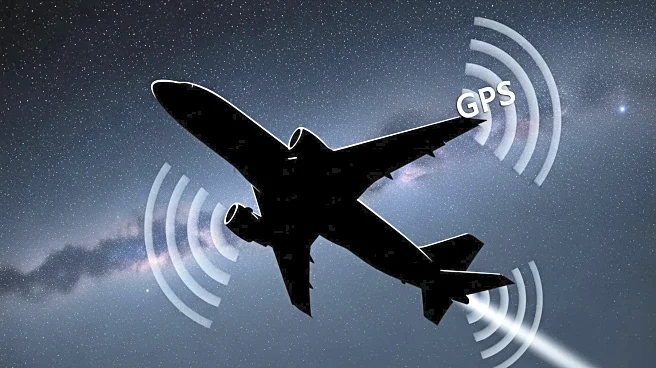What's Happening?
A plane carrying Ursula von der Leyen, the president of the European Union's executive arm, experienced GPS navigation jamming while flying over Bulgaria. Bulgarian authorities suspect Russia was responsible for the interference, according to an E.U. spokeswoman. The incident occurred during von der Leyen's tour of European Union member states near Russia, where she has been advocating for Ukraine amidst its ongoing conflict with Russia. The plane landed safely, but the jamming episode highlights the increasing use of GPS interference, particularly in regions close to conflict zones.
Why It's Important?
The alleged GPS jamming incident underscores the growing geopolitical tensions between Russia and the European Union, particularly in the context of the Ukraine conflict. Such interference poses significant risks to aviation safety and international relations, potentially escalating diplomatic strains. The use of GPS jamming can disrupt navigation systems, leading to confusion and safety hazards for pilots. This development may prompt increased security measures and technological countermeasures by affected countries to safeguard their airspace and ensure the safety of high-profile flights.
What's Next?
The Bulgarian authorities are expected to investigate the incident further to determine the exact cause and whether the plane was specifically targeted. The European Union may consider diplomatic responses or security enhancements to prevent future occurrences. Additionally, the incident could lead to broader discussions on international aviation safety protocols and the need for cooperation to address GPS jamming threats. Stakeholders, including aviation authorities and governments, may seek to develop strategies to mitigate such risks in the future.
Beyond the Headlines
The use of GPS jamming raises ethical and legal questions about the manipulation of satellite signals for strategic purposes. It highlights the vulnerability of modern navigation systems to technological interference, which can have far-reaching implications for global security and aviation safety. The incident may prompt discussions on international regulations and agreements to prevent the misuse of GPS technology in geopolitical conflicts.









